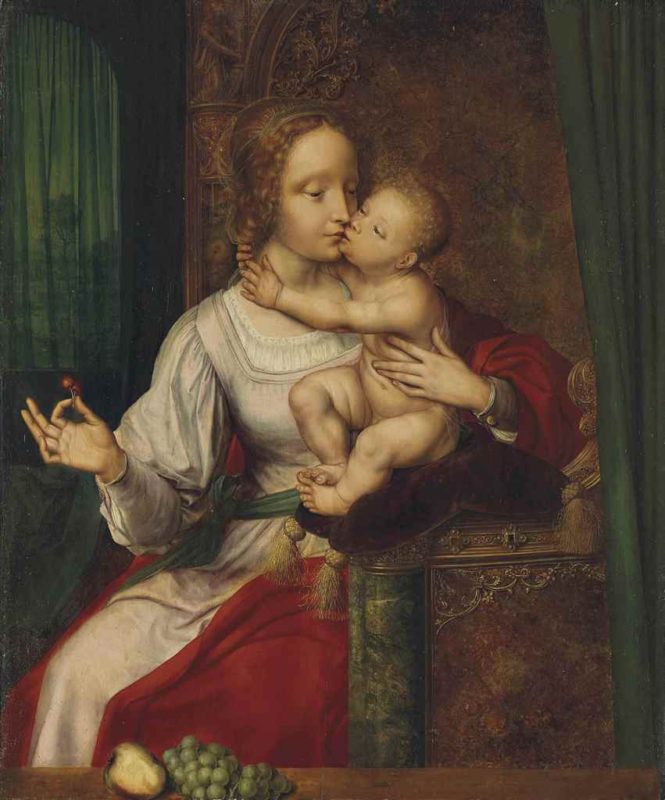The J. Paul Getty Museum in Los Angeles has just stricken the deal of the century by acquiring a famous artwork of the Flemish Renaissance painter Quentin Metsys for over £10 million. The Renaissance art masterpiece Madonna of the Cherries is a recently rediscovered 16th-century painting that represents a significant historical heritage and will occupy a significant position in the Getty’s Renaissance collection.
According to the Getty’s Renaissance art collection curator, this work by Metsys represents the artist’s unique visual style that emerged from a blend of the Netherlandish painting tradition and more modern Italian artistic innovations characteristic of the Renaissance period. Everyone wishing to embrace the one-of-a-kind style of the new Getty acquisition can view it on display at the Getty Center’s North Pavilion in Los Angeles.
Madonna of the Cherries: A Renaissance Art Masterpiece with a Long History
The painting, which was created in the 1520s, features a popular for Renaissance art Biblical image of the Virgin and Child, with Madonna holding cherries in her right hand. Its first owner was Cornelis van der Geest, a spice merchant from Antwerp; the painting changed hands in 1615 after its acquisition by Archduke Albert VII of Austria and his wife.
Madonna of the Cherries was lost during the 17th century and was long regarded as destroyed. Yet, it reappeared at the art sale in Paris in 1920. Despite the fact that art experts recognized the one-of-a-kind work by Quentin Metsys, the painting featured some unauthorized additions to the original canvas. It contained a green curtain added to the originally painted window and the landscape.

Rising Value of Renaissance Art
Experts note that this Renaissance art masterpiece was sold at an amazingly higher price than during the last deal. The 2015 purchase at Christie’s auction in London cost the painting’s previous owner only £254,000, mainly due to the unknown author’s additions to the canvas. Only after thorough restoration and conservation work undertaken by art experts could the painting finally be attributed to the hand of a famous Renaissance artist, Quentin Metsys.
The artwork’s price at this year’s auction exceeded £10 million in recognition of the unique Metsys heritage. This price is the painter’s new record price; another painting by Metsys, Mary in Prayer, was sold four years ago for over €1.5 million at an auction in Cologne. Therefore, the price dynamics suggest an elevated interest in this Renaissance artist’s scarce remaining legacy.



